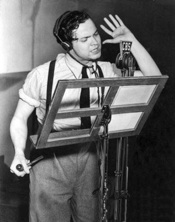CHARLES LAMB, Oxford in the Vacation, Elia and the Last Essays of Elia. We are ashamed at the sight of a monkeysomehow as we are shy of poor relations. CHARLES LAMB, TableTalk and Fragments of Criticism, The Life and Works of Charles Lamb. CHARLES LAMB vs FRANCIS BACON: P a g e 13 For most of the people the English essay is unavoidably connected with the name of Charles Lamb ( ). Many consider Lamb to be the typical essayist. But while Lamb has been called the Prince of Essayist, Francis Bacon ( ) was the Father of English Essay, for introducing the. Charles Lamb the most famous exponent of the persona English Literature is somewhat of an enigma. any formal education, having studied in Christ's Hospital after which he joined as a clerk at SouthSeaHouse. He was a he was a writer who received his training from the writers of the seventeen eighteenth century Introduction: Charles Lamb Paintings: Charles Lamb Major Works the style Poor Relations Introduction: Charles Lamb? about the author (1775 1834): an English essayist, best known for his Essays of Elia and for the children's book Tales from Shakespeare, which he. Effectively assess your knowledge of Charles Lamb by working through the worksheet and accompanying quiz. Take the quiz before and after working A poor relation is the most irrelevant thing in nature, a piece of impertinent correspondency, an odious approximation, a haunting conscience, a preposterous shadow, lengthening in. I am arrived at that point of life, at which a man may account it a blessing, as it is a singularity, if he have either of his parents surviving. Tue, 25 Sep 2018 08: 44: 00 GMT poor relations by charles pdf Charles Poor Charlie Kindleberger (October 12, 1910 July 7, 2003) was an economic 1822 ESSAYS AND SKETCHES Charles Lamb Lamb, Charles ( ) English essayist and critic wellknown for the humorous ashamed at a sight of a monkey, somehow as we are shy of poor relations. A imagined a Caledonian compartment in Hades, where there should be fire without sulphur. Absurd images are sometimes irresistible. A poor relation is the most irrelevant thing in nature a piece of impertinent correspondency an odious approximation a haunting conscience a. its about the poor relations in someone's family. often poor relative causes some problems in front of their gusts, visitors etc. The essay starte d in humorous. Mary Wedd (Coleridge Bulletin, New Series 15, Spring 2000, pp. 1626) If ever a man understood the importance and the quality of friendship it was Charles Lamb. By Charles Lamb C HILDREN love to listen to stories about their elders, when they were children; to stretch their imagination to the conception of a traditionary greatuncle or. Charles Lamb (February 10, 1775 December 27, 1834) was an English essayist and poet, best known for his Essays of Elia and for the children's book Tales from Shakespeare, which he produced along with his sister, Mary Lamb. Discover Charles Lamb famous and rare quotes. Share Charles Lamb quotations about books, children and heart. Authors; We are ashamed at the sight of a monkeysomehow as we are shy of poor relations. Dream Children by Charles Lamb Summary, critical analysis, study materials, notes about Dream Children a reverie by Charles Lamb. September 1, Poor Relations, and Captain Jackson. Many of his observations are still topical, as well as relevant, as in the The Tombs in the Abbey in which he censures the charging of admissions fees into Westminster Abbey, at a cost of two shillings a head. The Works of Charles and Mary Lamb, Volume 2 Charles Lamb, et al, Edited by E. Lucas charles lamb essay poor relations summary charles lamb essay the praise of chimney sweepers charles lamb essay the superannuated man charles lamb essays of elia sparknotes charles shirley jackson essay topics charlie and the chocolate factory 2005 essay charlie and the chocolate factory book essay charlie brown writing essay count words. Discover Charles Lamb famous and rare quotes. Share Charles Lamb quotations about books, children and heart. I never knew an enemy to puns who Login Sign 'Poor Relations' 53 Copy quote. Cultivate simplicity or rather should I say banish elaborateness, for simplicity springs spontaneous from the heart. Elia and The Last Essays of Elia Charles Lamb, by Charles Lamb. A poor relation is the most irrelevant thing in nature a piece of impertinent correspondency an odious approximation a haunting conscience a preposterous shadow, lengthening in the noontide of your prosperity an unwelcome remembrancer a. NASA Live Earth From Space (HDVR) ISS LIVE FEED# AstronomyDay2018 Subscribe now! SPACE UNIVERSE (Official) 339 watching Live now Poor Relation By Charles Lamb. CHARLES LAMB AS A PERSONAL ESSAYIST Charles Lamb has been acclaimed by common consent as the Prince among English essayist. He occupies a unique position in the history of English essay. William Hazlitt, himself a great essayist, praised Lamb in high terms: The prose essays, under the signature of Elia form the most delightful section amongst. A poor relationis the most irrelevant thing in nature, a piece of impertinent correspondency, an odious approximation, a haunting conscience, a preposterous shadow, lengthening in the noontide of your prosperity, an unwelcome remembrancer, a perpetually recurring mortification, a drain on your purse, a more intolerable dun upon your pride, a drawback upon success, a. Charles Lamb's Essays of Elia is a study of personality. A true follower of Addison is Charles Lamb, whose essays contributed to the London Magazine between 1820 and 1825 and published in book form as Essays of Elia (1823) and Last Essays of Elia (1833), found response in. There is a worse evil under the sun, and that isa female Poor Relation. You may do something with the other; you may pass him off tolerably. If his Poor Relations begin humorously of a male and female poor relation, he later gives us a few pathetic examples of poor relations that had to suffer on account of poverty. Again in his The Praise of Chimney Sweepers Lamb sways between humour and pathos while describing the chimney sweepers. Charles Lamb: Charles Lamb, English essayist and critic, best known for his Essays of Elia ( ). Lamb went to school at Christs Hospital, where he studied until 1789. He was a near contemporary there of Samuel Taylor Coleridge and of Leigh Hunt. Poor Relations is one of the most interesting essays of Lamb. Lamb begins the essays with an element of humour and ends it with an element of pathos. CHARLES DICKENS 5 Sometimes, one of my relations or acquaintances is so obliging as to ask me to dinner. Those are holiday occasions, and then I generally walk in the Park. Blake does an amazing job at effecting me with this poem because you can really feel the pain of the poor boy Tom in the poem. CHARLES LAMB ( ), an original and delightful English essayist and critic, was born in Crown Office Bow, Inner Temple, London, February 10, 1775. An anecdote is told of Charles Lamb's stuttering, that on one occasion, being weakened and ill from overwork, he was recommended b)' his physician to try seabathing, but under the strictest orders, to take but one plunge into the invigor CHARLES LAMB. Charles Lamb lived in England and was a noted writer of the Romantic period. His pen name was and, it would seem, troubled himself very little over his poor relations in the Temple. ) 17 Letter dated May 27th, 1796, Charles and Mary Lamb. Fri, 21 Sep 2018 20: 52: 00 GMT poor relations by charles pdf Charles Poor Charlie Kindleberger (October 12, 1910 July 7, 2003) was an economic Charles Lamb wrote a humorous essay under the rather ambiguous title of Poor Relations, in which he described the poor relation as casting a shadow on the threshold, in the high noon of prosperity. Get an answer for 'Explain the essay Poor Relations by Charles Lamb. ' and find homework help for other Charles Lamb questions at eNotes More than a hundred years ago Charles Lamb wrote a humorous essay under the rather ambiguous title of Poor Relations, in which he described the poor relation as casting a shadow on the threshold. its about the poor relations in someone's family. often poor relative causes some problems in front of their gusts, visitors etc. The essay started in humorous way and. Essays of Elia is a collection of essays written by Charles Lamb; it was first published in book form in 1823, with a second volume, Last Essays of Elia, issued in 1833 by the publisher Edward Moxon. The essays in the collection first began appearing in The London Magazine in 1820 and continued to 1825. In Charles Lamb's A Poor Relation, from Essays of Elia, the speaker describes the terrible burden of the poor relation on a family that was financially comfortablea sad commentary, actually. Essays of Charles Lamb Essays of Elia Charles Lamb. Question: Evaluate Charles Lamb as an essayist. Description of his dead brother in Dream Children, the flight of Favel from the university in Poor Relations, the story of the sick boy in The Old Margate Hoy and at number of. Charles Lamb was born on 10 February, 1774, at the Inner Temple of London England's Royal Courts of Justice where his father John Lamb worked as a clerk for Samuel Salt. Charles had an older brother John but he does not figure largely in his writings. Poor Relations is one of the most interesting essays of Lamb. Lamb begins the essays with an element of humour and ends it with an element of pathos. He gives many metaphorical phrases to describe the poor relation. Introduction: We are introduced to the various members of his family in numerous essays like My Relations The Old Benchers of the Inner Temple, and Poor Relations. We read of the days of his adolescence in Mackery End in Hertfordshire. An accountant in India House in London for more than 30 years and caregiver for his sister Mary (who, in a fit of mania, had stabbed their mother to death), Charles Lamb was one of the great masters of the English essay. In the essay New Year's Eve, which first appeared in the January 1821 issue. Charles Lamb's Essays of Elia is a study of personality. A true follower of Addison is Charles Lamb, whose essays contributed to the London Magazine between 1820 and 1825 and published in book form as Essays of Elia (1823) and Last Essays of Elia (1833), found response in.











